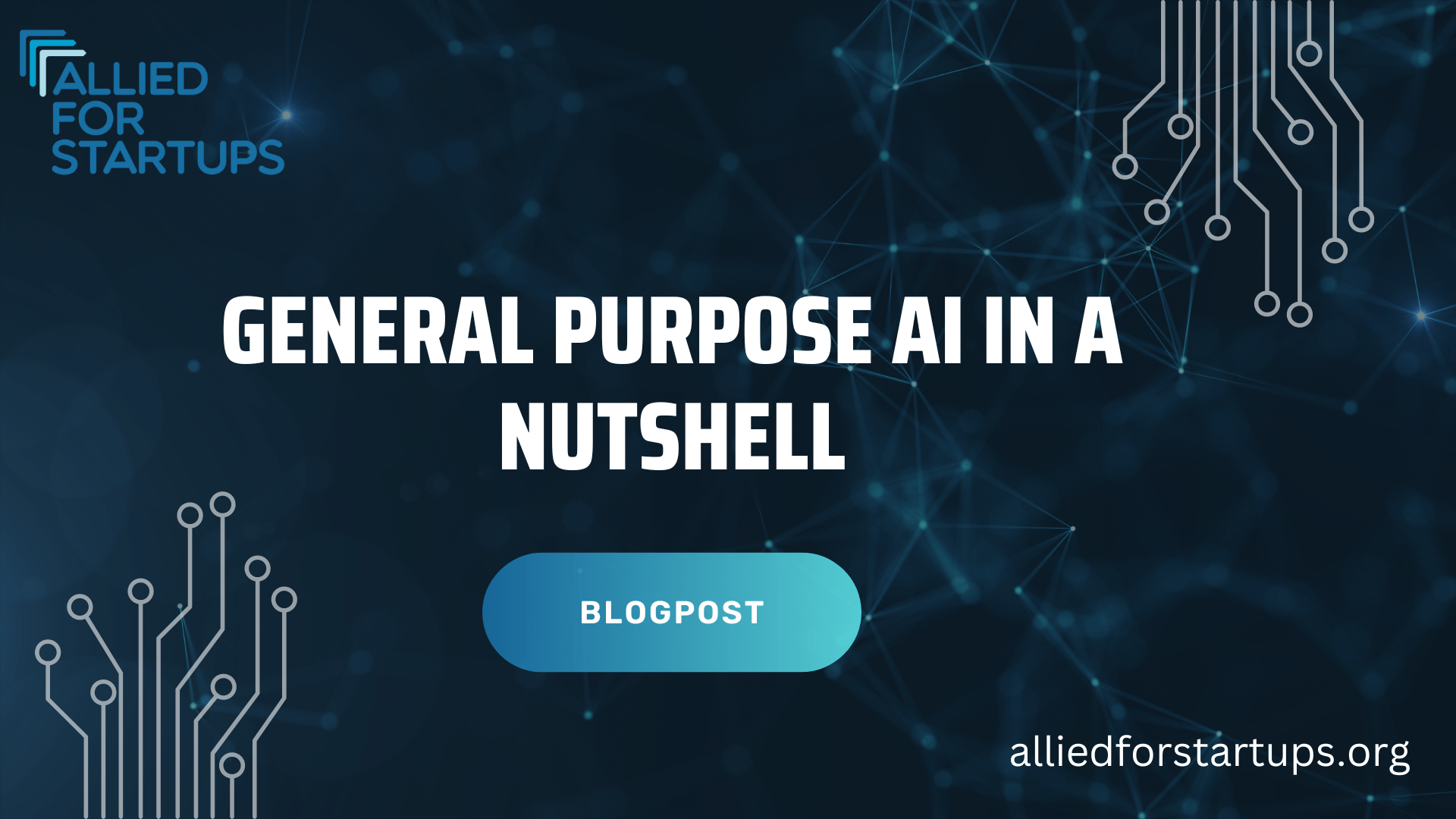AI Act & startups: General Purpose AI in a nutshell
The discussions on the European Commission‘s proposal on Artificial Intelligence Act (AIA) are advancing in the European Parliament and the Council of the EU. We are closely following, among others, the different approaches for the regulation of general purpose AI systems, which will directly impact startups. The latter were not initially in the scope of the AIA but related provisions were introduced later in the discussions in the European Parliament and the Council of the EU
The Czech Presidency of the Council of the EU, in the final version of its compromise text, requires that all general purpose AI and tools, very broadly defined, comply with most of the requirements of the AIA before market placement, regardless of the risk posed and specific use case. Similar proposals have also been put forward in the European Parliament.
We are particularly interested in the way that general purpose AI systems will be regulated under the AIA. General purpose AI systems are increasingly useful for startups due to their scale (a lot of memory, data and powerful hardware) and their reliance on transfer learning (applying knowledge from one task to another), and startups use them for different applications in a range of fields
But, what exactly is a general purpose AI system?
A general purpose AI system is an AI system that is intended by the provider to perform generally applicable functions (e.g. language processing, image and speech recognition, audio and video generation, pattern detection, question answering, translation, etc.). Such a system can be integrated in a plurality of other AI systems, in different fields, to perform different tasks, in various contexts, often without substantial modification. General purpose AI systems are widely used as pre-trained models for the development of more specialised AI systems. For example, a single general purpose AI system for language processing can be used as the foundation for a wide range of more specialised AI systems such as translation, chatbots, ad generation, etc.
Why should the EU regulators consider startups’ perspective when regulating general purpose AI?
We believe that including general purpose AI and tools -which by definition lack an intended purpose and can be applied in a multitude of often low-risk use cases- would overturn the AIA’s risk-based approach. Moreover, placing extensive compliance obligations on “initial” providers could lead to excessive costs and thus to increasing entry barriers to the general purpose AI market. In this context, it would be extremely difficult for “initial” providers, including startups to enter the market. Startups being active across the AI value chain can be “initial” and “subsequent” providers as well as users of general purpose AI. At this stage it is not clear whether startups acting as “subsequent” providers who have modified the general purpose AI of the “initial” provider will have the same extensive regulatory obligations as “initial” providers of general purpose AI. Besides, more entry barriers could lead to less actors operating as “initial providers” and thus to potentially less supply and options of general purpose AI systems available for startups users of general purpose AI.
The scope of the proposed regulatory approach for general purpose AI is very broad and could impact business relationships since it would redefine the regulatory burden between initial providers of general purpose AI systems and those startups that subsequently use these systems. In addition, startups largely make use of open source general purpose AI to innovate and to meet increasingly changing consumer needs. As AFS we want to make sure that they will continue to do so. However, this might be challenging in case “initial” providers of general purpose AI systems restrict startups “subsequent” providers or users from making the required changes to meet consumer needs, because of potential use of such systems in high-risk applications.
Thus, we encourage EU Institutions to reconsider the inclusion of general purpose AI systems into the scope of the AIA in order to avoid unintended consequences and disproportionate regulatory burden especially for startups which are providers of general purpose AI systems and ensure that the AIA maintains its risk-based approach and a balanced allocation of responsibilities for the AI value chain, for a framework that protects fundamental rights, while addressing the challenges posed by high-risk AI systems and supporting innovation.

